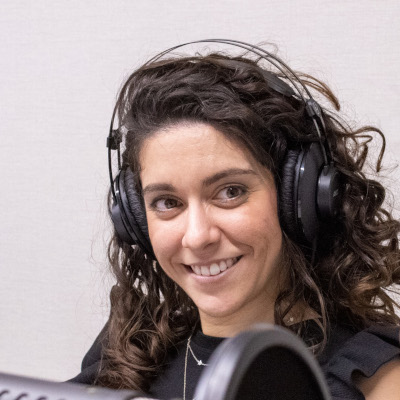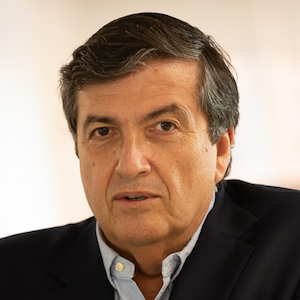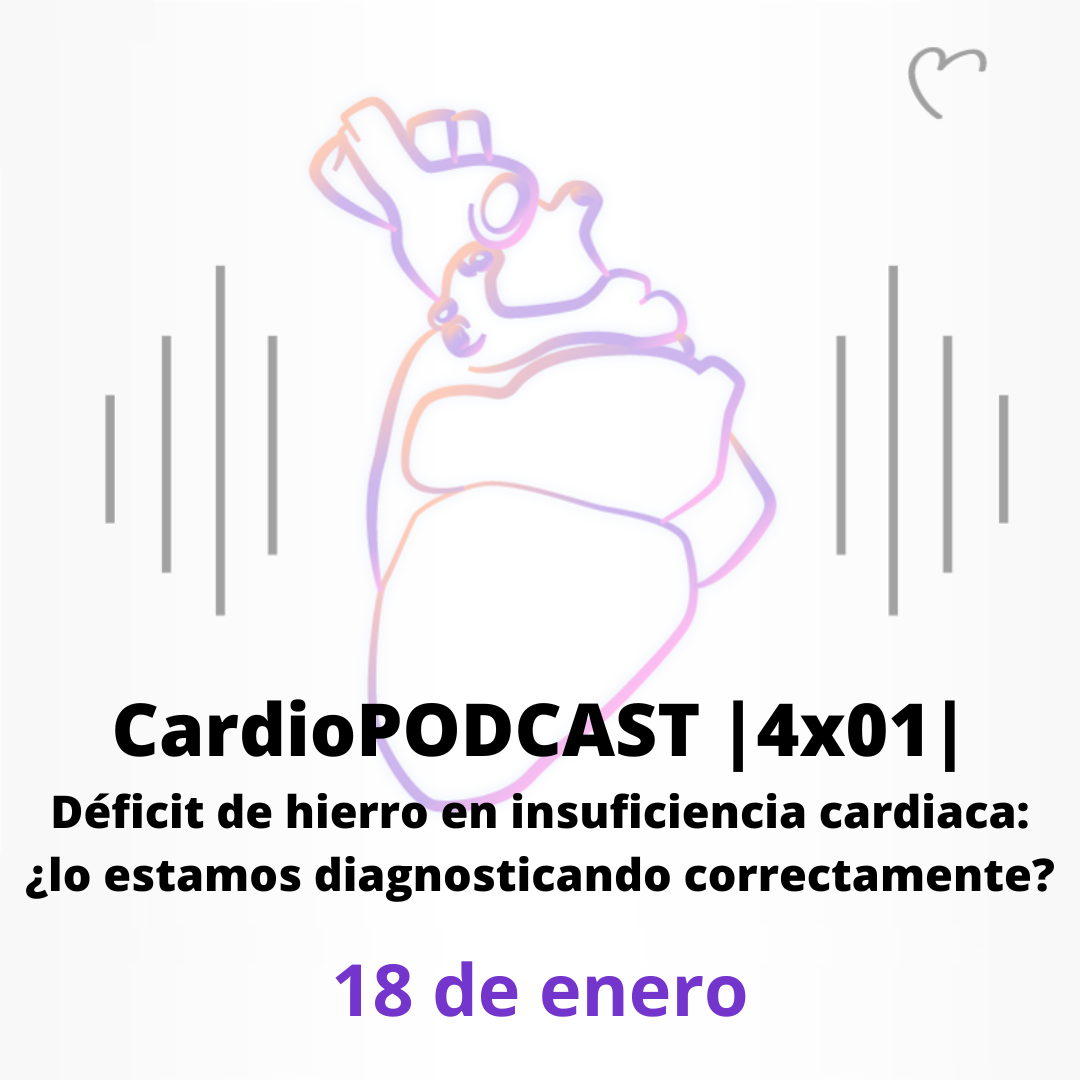La parada cardiorrespiratoria causa más de 250.000 muertes al año en Europa. Una formación adecuada del personal sanitario y de la población general es fundamental para mejorar la supervivencia de quienes sufren este evento fuera del hospital, así como aumentar la disponibilidad de desfibriladores y un acceso rápido a medidas más avanzadas.
¿Cuáles son las últimas novedades en cuanto al manejo de estos episodios? Carmen González de la Portilla repasa con Ana Viana, Esteban López de Sá y Miguel Corbí los datos registrados en España y la evidencia más actual en este campo.
Participantes:
 Carmen González de la Portilla-Concha
Carmen González de la Portilla-ConchaHospital Universitario de Badajoz
 Miguel Corbí Pascual
Miguel Corbí PascualComplejo Hospitalario Universitario de Albacete
 Esteban López de Sá y Areses
Esteban López de Sá y AresesHospital Universitario La Paz (Madrid)
 Ana Viana Tejedor
Ana Viana TejedorHospital Clínico San Carlos (Madrid)
- CardioPODCAST |1x06| La educación en los más jóvenes, clave para mejorar la RCP comunitaria
- Registro Español de Parada Cardiaca Extrahospitalaria (OSHCAR). Ministerio de Sanidad de España
- Trends in survival after cardiac arrest: a Swedish nationwide study over 30 years. Jerkeman M et al. Eur Heart J. 2022; 43 (46): 4817-29.
- Coronariografía urgente en los pacientes con parada cardiaca extrahospitalaria sin elevación del segmento ST. Ensayo clínico COUPE. A. Viana-Tejedor et al. Rev Esp Cardiol. 2023;76(2):94–102
- European Resuscitation Council Guidelines 2021
- Advanced reperfusion strategies for patients with out-of-hospital cardiac arrest and refractory ventricular fibrillation (ARREST): a pahse 2, single centre, open-label, randomised controlled trial. Yannopoulos et al. Lancet. 2020;396:1807-16.
- Hypothermia versus normothermia after out-of-hospital cardiac arrest. J Dankiewicz. N Engl J Med. 2021;384:2283-94. DOI: 10.1056/NEJMoa2100591.
- Coronary angiography in patients without ST-segment elevation following out-of-hospital cardiac arrest. COUPE clinical trial. Rev Esp Cardiol (Engl Ed). 2023 Feb;76(2):94-102. doi: 10.1016/j.rec.2022.05.013. Epub 2022 Jun 22.PMID: 35750580.
- COUPE trial Role of coronary angiography in patients with a non-diagnostic electrocardiogram following out of hospital cardiac arrest: Rationale and design of the multicentre randomized controlled COUPE trial. Eur Heart J Acute Cardiovasc Care. 2020;9(4_suppl):S131–S137.
- Coronary angiography after cardiac arrest without ST segment elevation. N Engl J Med. 2019;380:1397–1407.
- Angiography after Out-of-Hospital Cardiac Arrest without ST-Segment Elevation. N Engl J Med. 2021;385:2544–2553.
- Randomized pilot clinical trial of early coronary angiography versus no early coronary angiography after cardiac arrest without ST segment elevation: the PEARL study. Circulation. 2020;142:2002–2012.
- EMERGEncy versus delayed coronary angiogram in survivors of out-of-hospital cardiac arrest with no obvious non-cardiac cause of arrest: Design of the EMERGE trial. Am Heart J. 2020;222:131–138.
- Hypothermia versus Normothermia after Out-ofHospital Cardiac Arrest. N Engl J Med. 2021 Jun 17;384(24):2283-2294. doi: 10.1056/NEJMoa2100591. PMID: 34133859.
- Mandatory cardiopulmonary resuscitation competencies for undergraduate healthcare students in Europe: a European Resuscitation Council guidance note. Eur J Anaesthesiol. 2020;37:839–841.
- KIDS SAVE LIVES: school children education in resuscitation for Europe and the world. Eur J Anaesthesiol. 2017;34:792–796.
- Advanced reperfusion strategies for patients with out-of-hospital cardiac arrest and refractory ventricular fibrillation (ARREST): a phase 2, single centre, open-label, randomised controlled trial. Lancet. 2020 Dec 5;396(10265):1807-1816. doi: 10.1016/S0140-6736(20)32338-2. Epub 2020 Nov 13.
- Early Extracorporeal CPR for Refractory Out-of-Hospital Cardiac Arrest. N Engl J Med. 2023 Jan 26;388(4):299-309. doi: 10.1056/NEJMoa2204511.
- Proyecto CAPAC
- La formación en reanimación cardiopulmonar en las escuelas: es hora de reaccionar. DOI: 10.1016/j.recesp.2021.10.001








